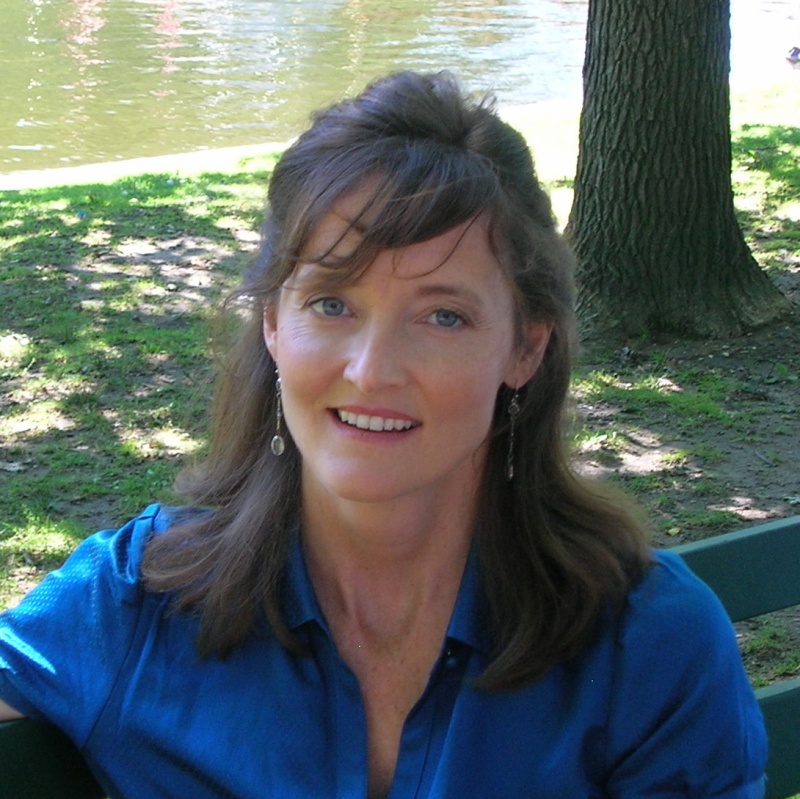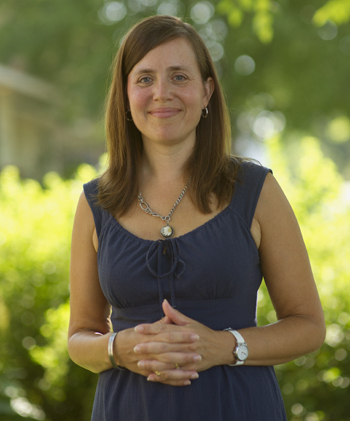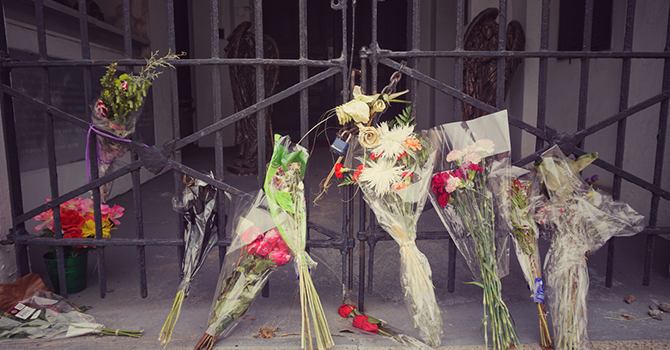Theologians have always wrestled with questions about suffering: Why do we suffer? Where is God in the suffering? Does God allow suffering? Does God will suffering?
But new research into trauma “pushes them to the extreme,” said theologian Shelly Rambo.
“I think what’s different is the way that trauma exposes the extreme vulnerability of human persons in relationship to larger historical forces,” Rambo said.
She became interested in the field of trauma studies while at Yale University in the 1990s, where researchers were studying the effect of the Holocaust on survivors. She has continued to explore the theological issues of suffering and witness with military chaplains and others who have experienced trauma.
An associate professor of theology at the Boston University School of Theology, Rambo is the author of “Spirit and Trauma: A Theology of Remaining,” in which she rejects a triumphalistic theology of resurrection and develops a theology of Holy Saturday.
Rambo spoke with Faith & Leadership while at Duke Divinity School for the Center for Reconciliation’s 2014 Summer Institute. The following is an edited transcript.
Q: What is trauma studies?
Trauma studies is not one field. It’s multiple fields coming together to say, “How do we understand what seems to be an extreme and overwhelming effect of violence and suffering in our day?”
The study of trauma largely emerged at the end of the 19th century -- you could say it all began with Sigmund Freud. He was trying to make sense of what he was seeing in the midst of World War I, when he was seeing veterans return from war.
This phenomenon of trauma seemed to be a different form of suffering from what he had witnessed in his patients, and so some of Freud’s early theories birthed a whole study of trauma.
Certainly, the study of war continued with World War I, World War II, Korea, Vietnam. And a lot of what we know about trauma is from studying veterans, because they went to hospitals, and this could be documented.
Also, post-Holocaust studies were very instrumental to what we think about as the study of trauma. How do we think about an overwhelming, historical event of suffering and its effects? A lot of the study of trauma emerged about what seemed to be overwhelming suffering that can’t be explained or that can’t be narrated straightforwardly in a kind of clinical relationship.
Trauma moved off the psychoanalytic couch because suddenly the study of trauma became interesting to historians and to neurobiologists and to philosophers and to people like Toni Morrison, who I think writes the best about the trauma of slavery and how it’s experienced, and the kind of haunting of history into the present.
The study of trauma as a theologian became really important, because theologians always study suffering.
Q: The suffering component seems a natural fit with theology.
One of the perennial questions of human existence is, Why do we suffer? And for theologians, Where is God in the suffering? Does God allow suffering? Does God will suffering? Is God absent or present in suffering?
Theologians have always asked that, but I think what’s different is the way that trauma exposes the extreme vulnerability of human persons in relationship to larger historical forces.
Often, trauma was thought of as very individual, right? Often we think about trauma as a traumatic event. An event happens.
But what we’re beginning to see is that traumatic events don’t end. Traumas are moving -- and we could say bleeding -- into other traumas. We don’t see a clear end to a suffering event but instead a kind of overflowing of suffering.
I think that trauma takes all of our theological questions -- and theological answers -- and it pushes them to the extreme.
I would look at someone like Jürgen Moltmann and say he was trying to make sense of Christian theology in light of the extreme suffering of the Jews in the Holocaust, and Christian theology could no longer be read the same way. That’s the birth of trauma and theology for me.
We can’t do a light touch on suffering anymore. It really is going to challenge our fundamental assumptions about the nature of God and humanity.
Q: How did you get into this field?
Well, I first studied English literature, and I’m at heart somebody who is a great lover of story. I was raised with this great sense of the biblical imagination and these great stories of David and Goliath, and it kind of fed me and bred me to love literature, I think, at its best.
It really was when I started to read the post-Holocaust literature where I started to see this is a story that can’t be told.
Q: Because of issues of memory or just because it’s so horrific?
Issues of memory, and yes, I think questions of the impossibility of speaking -- recovering a memory, speaking -- and the question of whether anybody could hear it if it was spoken.
These were all questions that someone like Elie Wiesel made very clear to me: What does it mean to write the horror of the Holocaust? What does it mean to write an event that can’t be written?
The post-Holocaust literature became really interesting to me, and then when I was at Yale Divinity School, I would trudge down the hill and I would go sit in on brown-bag lunch seminars that the Yale Psychiatric Institute was doing.
At that time, the Yale Psychiatric Institute was doing some of the primary clinical work with Holocaust survivors and their children, and so I was listening to it. It was, strangely, open to the public.
I was listening to psychoanalysts discuss the cases of the intergenerational transmission of trauma and the challenges of trying to think about a suffering that transmits across generations. And I thought, wow, this is a profound level at which the human story is disrupted, and yet somehow violence continues.
So it was from literature to this phenomenon of human experience that I’d really never heard about before -- the experience of suffering after catastrophe -- and I just trudged back up the hill at Yale Divinity School and I said, “Theology really needs to take this seriously.”
At that time, Serene Jones was at Yale Divinity School, and I did a directed study with her because she was interested in reading some of the trauma studies that were happening at Yale at that time.
We can do better in Christian theology to think about suffering, not as something abstract, but as a phenomenon around us that needs to be addressed, and that’s what I do with returning veterans. We have an obligation to re-integrate persons into a new community, and theology matters in doing that.
Q: Do you look at the resurrection in a different way in light of trauma?
Yes. The first book that I wrote was really a refusal of a kind of triumphalistic theology of resurrection. It was because, in the case of many people who are living beyond traumas, the resurrection was often heard as a rush to get over it, to recover, or as pressure to live into resurrection when in fact the reality of their trauma was still very present.
There’s this sense that because it’s a part of the narrative of the life, death and resurrection of Jesus, yes, there may be extreme suffering, but we have the good news in the end. The effect of that is that often we don’t linger very long in the suffering in Christian churches.
Walter Brueggemann says that we don’t pause on the Saturday between Good Friday and Easter because we already know the end. But that moment, the moment of Holy Saturday -- which I develop quite extensively -- is that important moment in which you’re living beyond a death, a kind of metaphorical death, but can’t see life clearly ahead.
So what does it mean to take that theological moment -- that Saturday -- as really a descent into hell? People who experience trauma will narrate something like a descent into hell, which is a sense of survival but not living anew again.
So that moment became really important for me to develop theologically. So what is the call of the Christian community to live all of those moments -- Friday, Saturday, Sunday? Because they come around again every year, right?
I’m working on a book now on resurrection wounds, so I’m rereading the story of Thomas’ encounter with the risen Christ, that Gospel of John story that’s so visually powerful, in which the resurrected Christ shows Thomas the wounds, and the wounds still remain there.
So often we read that story as Thomas doubts that it happened, and so Thomas becomes the believer because he comes to faith because of the wounds. I think we’re still not reading the wounds as seriously as we could in terms of the way in which life is marked by suffering.
It’s not doomed to be the only thing there, but the wounds, for many people, constitute part of how they understand their new life.
Maybe the work of the Christian community is to witness the wounds and bring them back into life again.
So there’s a different reading of the resurrection if you read a lot of trauma literature. Basically, what I do invites me into a new way of thinking about suffering, and then I’ve got to go back to my Christian texts and say, “OK, what does this biblical story mean in light of the wounds that I’m seeing all around me?”
Q: How does someone in a position of Christian leadership use what you do in working with people?
I went back to the biblical narrative with all of this reading about trauma -- what happens to the brain, and some of the deeper philosophical questions about what does it mean not to know an experience that has happened to you, the cognitive inability to know.
So I took all of this back to the biblical texts, and one of the things that stood out to me was the importance of those who witness at the foot of the cross, and the importance of those moments in which the disciples don’t recognize Jesus when he appears -- Is he the gardener? -- those moments of not being able to discern what’s going on.
That made me think about how hard it is to witness suffering, how hard it is in the chaos in which you don’t know whether life’s going to emerge for someone. So in a sense, the preacher or the Christian leader becomes the Mary and the beloved disciple and the Thomas who don’t have a clear sign of life.
None of those witnesses really have some triumphant understanding of “Oh, it’s all going to be good in the end.” Their work of witnessing is part of the redemption story, so that it puts a kind of pressure on Christian leaders to say that in the witnessing of suffering, we are about the work of redemption.
So all of a sudden, the disciples got really exciting to me. Now I look and I say how confusing it is to be able to stare death in the face and to live beyond that, and the grief and sorrow of not being able to understand what’s going on.
Christian leaders are called into that space in a way that I hadn’t realized before. The proclamation of the good news of the resurrection has to do with participating in this process of witnessing the dying and the rising of all creatures, witnessing the new creation coming into being.
So that seemed to me like a different emphasis. Instead of proclaiming a very positive, triumphant kind of word, you had witnessing as a slow, almost unsatisfying, unrewarding process of accompaniment. The accompaniment often means not knowing, not having that certainty.
It doesn’t mean you don’t have the promise, but the certainty’s not there. You can hold on to the promises of God that life will come about, but holding on to the promise is different from a certainty that we know how this is going to end. Because often we don’t, when we’re with people and communities who are in such pain.
We don’t really know how that life is going to come about, so we cling to the promise and we do the slow work of witness.
Q: Do you work with trauma survivors?
When I was first teaching, I’d done my dissertation and I was really interested in trauma studies from a literary perspective, from a philosophical perspective, and so I was doing highly conceptual work like you do as a Ph.D. student.
I got a real education when I started to teach classes related to trauma. First of all, they would fill up and people would seek them out, because these were the questions that people wanted to ask. So I started teaching this class rather innocently, thinking people were going to be so excited about all this trauma theory and neurobiological research.
It is fascinating stuff, but what happened is I got pulled into multiple levels of engaging trauma and some very on-the-ground work.
The area that’s been probably most sustained over the last six years is issues related to military trauma. I started to get military chaplains in the trauma and theology class. The ways in which these military chaplains embodied the intersection between trauma care and theology was just astounding.
I started to say yes to any invitations that they extended to me to learn about their world, and that took me to places like the Naval War College in Rhode Island and the [Air Force Chaplain Corps College] at Fort Jackson. I was interested in how chaplains were being trained theologically to do their work.
They kept saying, “This is exactly what we need to have training in,” and so I just kept accepting invitations, which led me to develop a chaplaincy track at Boston University with members of the Religion and Conflict Transformation program.
I think Christian ministers are really struggling with the realities of violence, the pervasiveness of it, and the degree to which their own communities are being exposed to that violence and are really craving theologies of suffering.
Devastating things are happening to people in their congregations and in their communities, and how do you get up and preach? How do you teach the biblical stories? So I got an education in trauma, but I also have a passion to help religious leaders translate some of their stories into a new day.
The rituals of lament and rituals of baptism -- these are very profound rituals that I think can be re-purposed. So there’s a kind of new purposefulness in my teaching, to keep addressing some of these issues.










